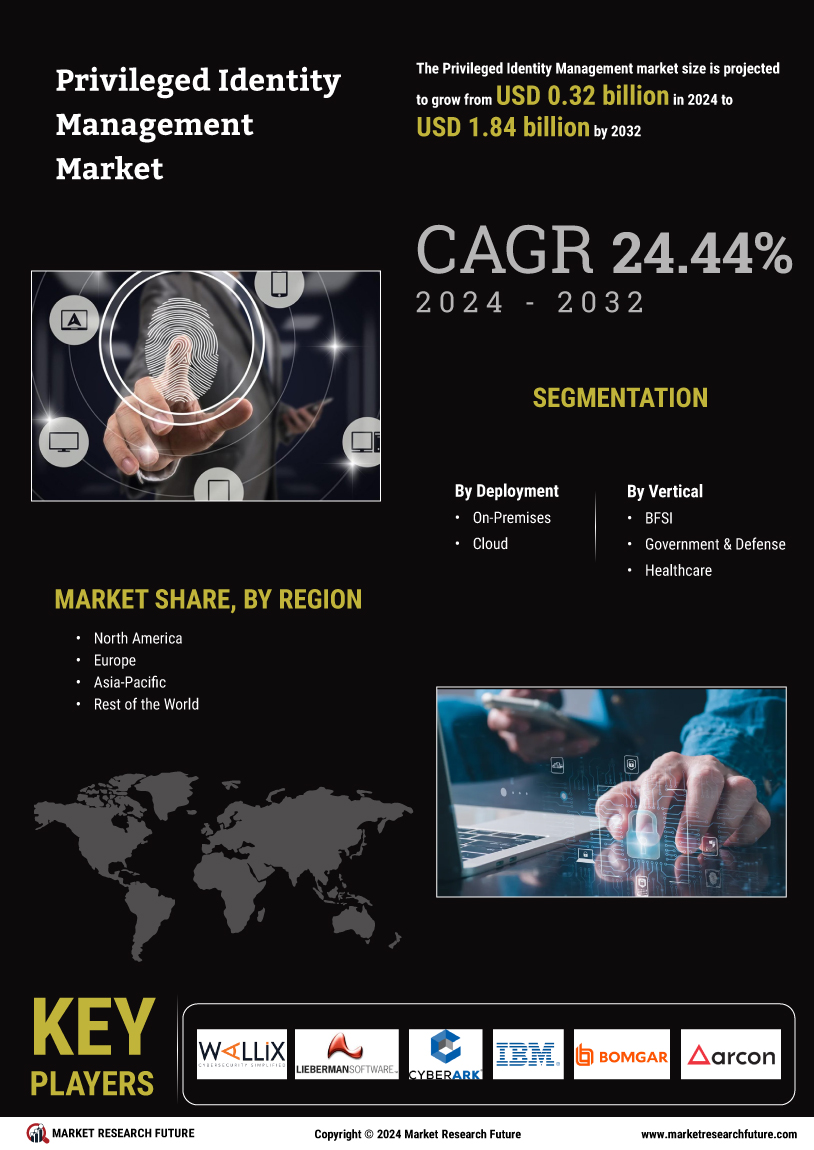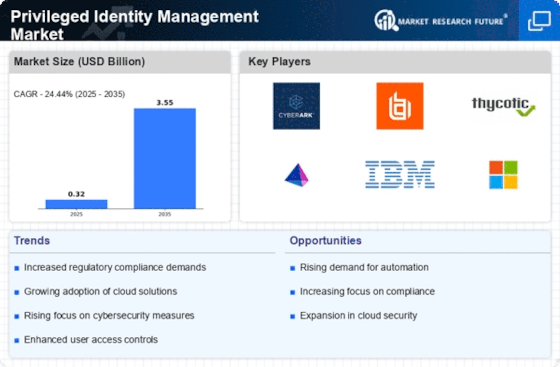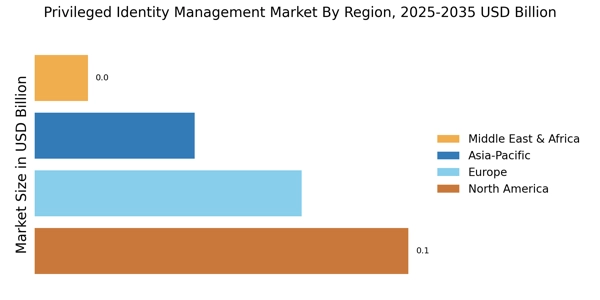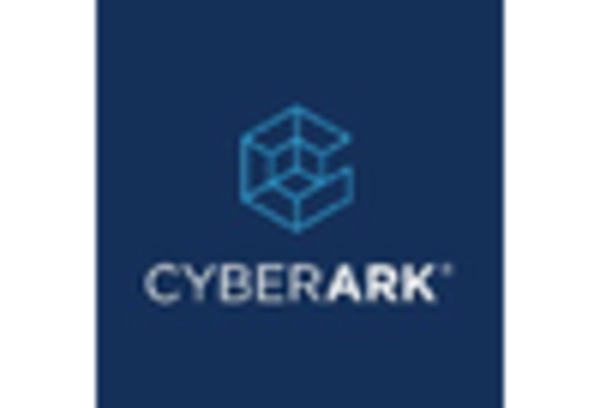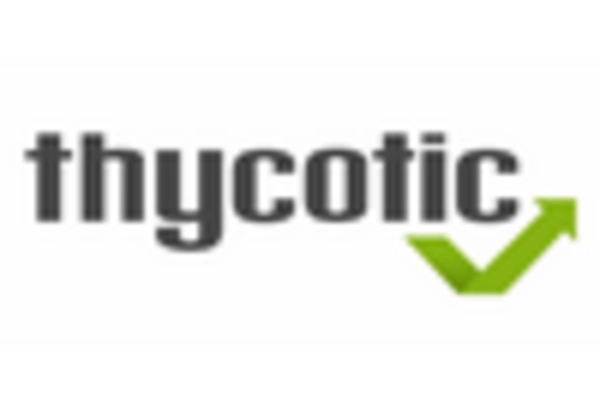Adoption of Cloud Services
The rapid adoption of cloud services is reshaping the IT landscape, leading to an increased focus on securing privileged identities in cloud environments. As organizations migrate to cloud-based platforms, the need for effective privileged identity management becomes paramount to safeguard sensitive data and maintain compliance. The Privileged Identity Management Market is witnessing a shift as businesses seek solutions that can seamlessly integrate with cloud services. Research indicates that the cloud security market is projected to grow to USD 12.6 billion by 2025, highlighting the urgency for organizations to implement robust identity management solutions. This trend suggests that the intersection of cloud adoption and privileged identity management is a key driver for market growth.
Rising Cybersecurity Threats
The increasing frequency and sophistication of cyberattacks has heightened the need for robust security measures, particularly in the Privileged Identity Management Market. Organizations are recognizing that privileged accounts are prime targets for attackers, leading to a surge in demand for solutions that can effectively manage and secure these accounts. According to recent data, The Privileged Identity Management Market is projected to reach USD 345.4 billion by 2026, indicating a strong correlation between rising threats and the growth of security solutions, including privileged identity management. This trend suggests that organizations are prioritizing investments in technologies that can mitigate risks associated with privileged access, thereby driving the growth of the Privileged Identity Management Market.
Regulatory Compliance Requirements
The landscape of regulatory compliance is becoming increasingly complex, compelling organizations to adopt stringent measures to protect sensitive data. The Privileged Identity Management Market is experiencing growth as businesses strive to comply with regulations such as GDPR, HIPAA, and PCI DSS. These regulations mandate strict controls over access to sensitive information, which necessitates the implementation of privileged identity management solutions. As organizations face potential penalties for non-compliance, the demand for effective management of privileged accounts is likely to rise. The market for compliance-related technologies is expected to grow significantly, further propelling the Privileged Identity Management Market as organizations seek to align their security practices with regulatory expectations.
Increased Awareness of Insider Threats
The recognition of insider threats as a significant risk factor is influencing the growth of the Privileged Identity Management Market. Organizations are becoming more aware that employees with privileged access can pose a substantial risk, whether intentionally or unintentionally. This awareness is prompting businesses to implement more stringent controls over privileged accounts to mitigate potential threats. Data suggests that insider threats account for approximately 34% of all data breaches, underscoring the need for effective identity management solutions. As organizations seek to protect their assets and maintain trust, the demand for privileged identity management solutions is likely to continue to rise.
Growing Need for Operational Efficiency
Organizations are increasingly focused on enhancing operational efficiency, which is driving the adoption of privileged identity management solutions. By automating the management of privileged accounts, businesses can reduce the risk of human error and streamline access controls. The Privileged Identity Management Market is benefiting from this trend as organizations recognize the value of integrating automation into their security practices. Studies indicate that companies that implement automated identity management solutions can reduce operational costs by up to 30%. This potential for cost savings, coupled with improved security posture, is likely to encourage further investment in privileged identity management technologies.
